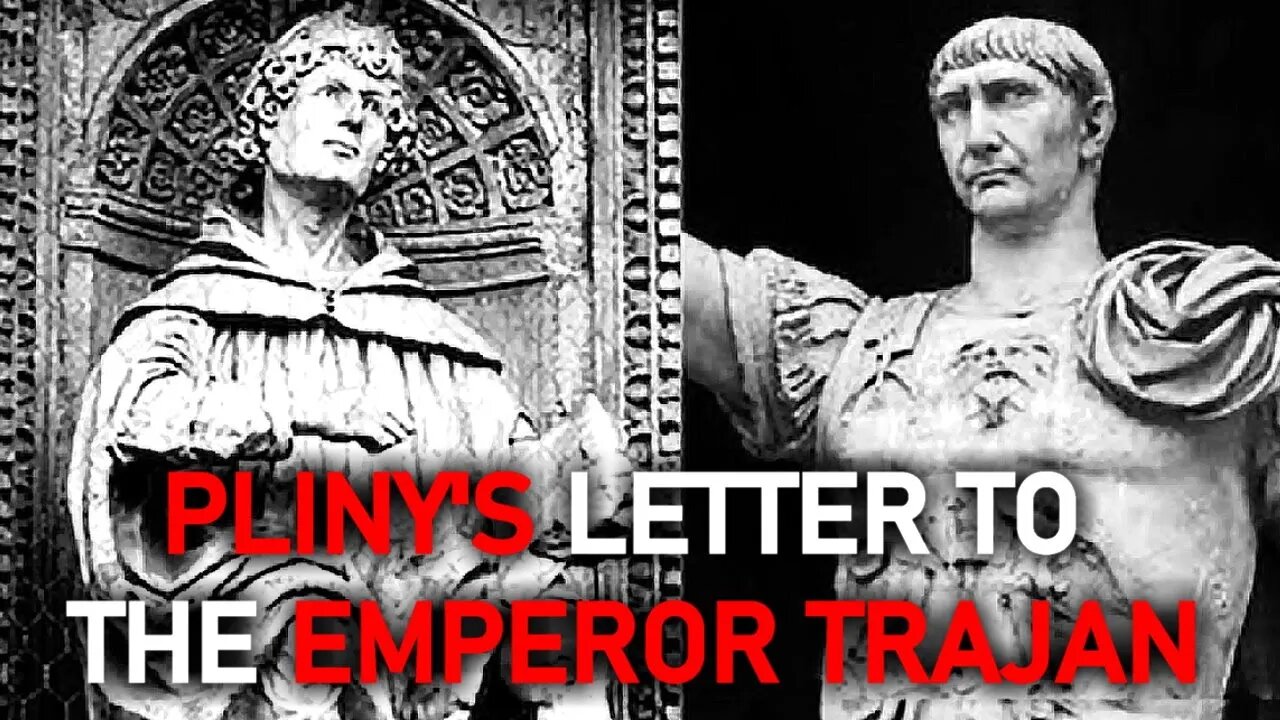Premium Only Content

Pliny's Letter to the Emperor Trajan / Asked for Counsel on Dealing with the Early Christians
Pliny the Younger (61—c.113 AD), the Roman governor of Bithynia et Pontus (now in modern Turkey) wrote a letter to Roman Emperor Trajan c.112 AD and asked for counsel on dealing with the early Christians
Correspondence with the Emperor Trajan by Gaius Plinius Caecilius Secundus (Pliny the Younger) 61 - 113
GAIUS PLINIUS CAECILIUS SECUNDUS, usually known as Pliny the Younger, was born at Como in 62 A. D. He was only eight years old when his father Caecilius died, and he was adopted by his uncle, the elder Pliny, author of the Natural History. He was carefully educated, studying rhetoric under Quintilian and other famous teachers, and he became the most eloquent pleader of his time. In this and in much else he imitated Cicero, who had by this time come to be the recognized master of Latin style. While still young he served as military tribune in Syria, but he does not seem to have taken zealously to a soldier's life. On his return he entered politics under the Emperor Domitian; and in the year 100 A. D. was appointed consul by Trajan and admitted to confidential intercourse with that emperor. Later while he was governor of Bithynia, he was in the habit of submitting every point of policy to his master, and the correspondence between Trajan and him, which forms the last part of the present selection, is of a high degree of interest, both on account of the subjects discussed and for the light thrown on the characters of the two men. He is supposed to have died about 113 A. D. Pliny's speeches are now lost, with the exception of one, a panegyric on Trajan delivered in thanksgiving for the consulate. This, though diffuse and somewhat too complimentary for modern taste, became a model for this kind of composition. The others were mostly of two classes, forensic and political, many of the latter being, like Cicero's speech against Verres, impeachments of provincial governors for cruelty and extortion toward their subjects. In these, as in his public activities in general, he appears as a man of public spirit and integrity; and in his relations with his native town he was a thoughtful and munificent benefactor.
-
 2:49
2:49
Christian Sermons and Audio Books
4 months agoModern Culture in a Conscious Revolt Against Christianity - Dr. C. Gregg Singer / Lecture
4511 -
 DVR
DVR
Badlands Media
1 day agoDEFCON ZERQ EP. 005
41.3K17 -
 LIVE
LIVE
FreshandFit
3 hours agoWhy Black Men Don't Date Black Women Debate
1,924 watching -
 2:03:42
2:03:42
Inverted World Live
7 hours agoBigfoot Corpse Coming to the NY State Fair | Ep. 94
79.6K15 -
 LIVE
LIVE
SpartakusLIVE
7 hours ago$1,000 Pistol Challenge || #1 ENTERTAINER of The EONS Eradicates BOREDOM
843 watching -
 2:33:37
2:33:37
TimcastIRL
5 hours agoTrump Orders Review of Smithsonian For Being Woke & Out of Control | Timcast IRL
150K50 -
 3:09:10
3:09:10
Barry Cunningham
8 hours agoPRESIDENT TRUMP HAS TAKEN THE MONSTER AWAY FROM THE LEFT! HORROR STORIES WON'T WORK ANYMORE!
64K66 -
 1:29:55
1:29:55
WickedVirtue
2 hours agoLate Night Fortnite w/ Friends
25.1K -
 LIVE
LIVE
This is the Ray Gaming
3 hours ago $0.22 earnedCould you be? Would you be? Won't you be my RAYBOR? | Rumble Premium Creator
45 watching -
 1:46:52
1:46:52
JahBlessGames
4 hours ago🎉Come een' and come tru' - VIBES | MUSIC | GAMES
31.1K